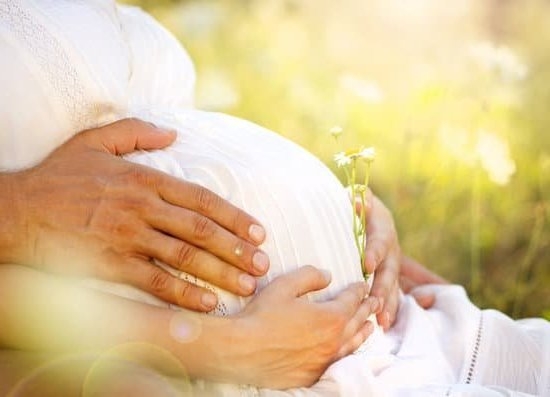Matcha, a finely ground powdered green tea, has become increasingly popular among health enthusiasts for its numerous health benefits. However, expectant mothers often wonder, “Is matcha safe during pregnancy?” This article delves into the world of matcha and its effects on pregnancy to provide clarity on this topic.
Matcha is known for its high concentration of antioxidants and nutrients, making it a desirable addition to many diets. With its vibrant green color and unique flavor profile, matcha has captured the attention of individuals seeking to boost their overall well-being through natural sources. As more people turn to matcha as a health trend, it is essential to understand how this beverage may impact specific life stages, such as pregnancy.
Proper nutrition during pregnancy plays a crucial role in supporting the health of both the mother and the developing baby. Therefore, expectant mothers must be mindful of their dietary choices and how certain foods or beverages may affect their pregnancy. In this context, exploring the safety of consuming matcha during pregnancy becomes important to ensure that women make informed decisions about their health and well-being.
Benefits of Matcha
Matcha, a finely ground powder made from specially grown and processed green tea leaves, has been gaining popularity as a health trend in recent years. Beyond its vibrant green color and unique taste, matcha is known for its abundance of antioxidants and nutrients that can provide numerous health benefits.
These include catechins, a type of antioxidant known for their ability to fight inflammation and promote overall well-being. Matcha also contains vitamins A, C, E, and K, as well as minerals like potassium and magnesium.
For pregnant women, maintaining a balanced and nutritious diet is crucial to support the health and development of both the mother and the baby. With its array of antioxidants and nutrients, matcha can be a beneficial addition to a pregnancy diet when consumed in moderation. The antioxidants present in matcha can help protect cells from damage caused by free radicals and support immune function during pregnancy. Additionally, the vitamins and minerals found in matcha can contribute to overall maternal health.
However, it is essential for pregnant women to be mindful of their caffeine intake when incorporating matcha into their diet. While matcha does contain caffeine like other forms of green tea, it generally has lower levels compared to coffee or black tea. Moderation is key when consuming caffeinated beverages during pregnancy, including matcha.
It is recommended that pregnant women limit their daily caffeine intake to 200mg or less to avoid potential negative effects on pregnancy. Overall, consulting with a healthcare provider is advisable before making any significant changes to dietary habits during pregnancy.
Understanding Pregnancy Nutrition
Pregnancy is a crucial time in a woman’s life where maintaining proper nutrition is essential for the health of both the mother and the developing baby. A balanced diet rich in nutrients is vital to support the growth and development of the fetus, as well as to ensure the overall well-being of the expectant mother.
During pregnancy, the body’s nutrient requirements increase to meet the demands of the growing baby, making it important for women to pay close attention to their dietary choices.
To support a healthy pregnancy, it is recommended for expectant mothers to consume a variety of foods that are rich in essential nutrients such as folate, iron, calcium, protein, and omega-3 fatty acids. These nutrients play key roles in fetal development, from preventing neural tube defects with folate to supporting bone health with calcium.
Including a diverse range of fruits, vegetables, whole grains, lean proteins, and healthy fats in one’s diet can help ensure that both mom and baby are getting all the necessary nutrients for a healthy pregnancy.
When considering dietary choices during pregnancy, many women may wonder about the safety of consuming certain food items like matcha. Matcha is a type of green tea that has gained popularity for its high antioxidant content and potential health benefits.
However, given its caffeine content, some pregnant women may have concerns about whether it is safe to include matcha in their diet. Let’s explore further if matcha is safe during pregnancy and what precautions should be taken when consuming it.
- Include a variety of fruits and vegetables
- Choose whole grains over refined grains
- Incorporate lean proteins such as poultry, fish, beans, and tofu
- Opt for low-fat dairy products for calcium intake
Caffeine Content in Matcha
Matcha, a finely ground powder of specially grown and processed green tea leaves, has become increasingly popular as a health trend due to its numerous health benefits. While it is well known for being rich in antioxidants and nutrients, one aspect that raises concerns, especially among pregnant women, is its caffeine content. Understanding the caffeine levels in matcha compared to other beverages is crucial when considering its safety during pregnancy.
The Caffeine Content in Matcha
Matcha contains caffeine like regular green tea; however, the concentration of caffeine in matcha can vary depending on factors such as the quality of the tea leaves used and how it is prepared. On average, one cup of matcha contains approximately 25-70 milligrams of caffeine.
To put this into perspective, a cup of coffee typically contains around 95 milligrams of caffeine. This means that matcha generally has lower caffeine levels compared to coffee but slightly higher than brewed green tea.
Caffeine Consumption During Pregnancy
Pregnant women are often advised to limit their caffeine intake as excessive amounts can have adverse effects on the developing fetus. High levels of caffeine consumption have been associated with an increased risk of miscarriage, low birth weight, and other complications. It is recommended that pregnant individuals consume no more than 200 milligrams of caffeine per day.
Given that matcha falls within this range per cup, moderate consumption may be considered safe during pregnancy. However, it is essential for expectant mothers to consult with their healthcare providers before incorporating matcha into their diet to ensure it aligns with their specific health needs.
Safe Consumption Practices
If you are pregnant and considering consuming matcha, it is advisable to opt for high-quality organic varieties to minimize potential risks associated with contaminants or pesticides. Additionally, limiting your overall daily caffeine intake from all sources is crucial to staying within recommended guidelines. Enjoying an occasional cup of matcha as part of a balanced pregnancy diet should not pose significant risks; however, moderation and monitoring your total caffeine intake remain essential factors in ensuring a healthy pregnancy journey.
Research on Matcha and Pregnancy
Matcha is a type of finely ground green tea that has gained popularity in recent years due to its numerous health benefits. Rich in antioxidants and nutrients, matcha is known for its potential to boost metabolism, improve focus, and lower the risk of chronic diseases. However, the question of whether matcha is safe during pregnancy is a common concern among expectant mothers.
Research on the effects of consuming matcha during pregnancy remains limited, but some studies suggest that moderate consumption may be safe for pregnant women. It is essential for expectant mothers to consider the caffeine content in matcha when deciding whether to include it in their diet. Matcha contains less caffeine than coffee but more than regular green tea, so moderation is key.
To ensure safety during pregnancy, here are some best practices to consider when consuming matcha:
- Consult with your healthcare provider before adding matcha to your diet during pregnancy.
- Limit your daily intake of matcha to one cup or less to avoid excessive caffeine consumption.
- Choose high-quality organic matcha from reputable sources to minimize any potential risks.
While more research is needed on the specific effects of consuming matcha during pregnancy, following these best practices can help expectant mothers make informed decisions about including matcha in their diet. Ultimately, consulting with a healthcare provider is crucial in determining whether consuming matcha is safe for individual pregnancies.
Best Practices
Matcha, a type of powdered green tea, has gained popularity in recent years due to its numerous health benefits. However, when it comes to consuming matcha during pregnancy, there are some factors to consider. Many expecting mothers wonder, “Is matcha safe during pregnancy?” The good news is that matcha can be enjoyed safely during pregnancy, but moderation is key.
One of the main concerns regarding matcha consumption during pregnancy is its caffeine content. While matcha does contain caffeine, it has lower levels compared to coffee. It’s important for pregnant women to limit their caffeine intake to around 200mg per day, according to most healthcare professionals. A typical cup of matcha contains approximately 70mg of caffeine, so it can be included as part of a balanced diet for expectant mothers.
In addition to its moderate caffeine content, matcha is also rich in antioxidants and nutrients that can benefit both the mother and the developing fetus. These antioxidants can help reduce inflammation and promote overall health. When consumed in moderation as part of a well-rounded diet, matcha can be a safe and enjoyable beverage choice for pregnant women. Just remember to consult with your healthcare provider before making any significant changes to your diet during pregnancy.
| Category | Recommended Daily Intake |
|---|---|
| Caffeine | Around 200mg per day |
| Matcha | Approximately 70mg per cup |
Conclusion
In conclusion, the question of whether matcha is safe to consume during pregnancy is a topic that requires careful consideration. While matcha boasts numerous health benefits, including high levels of antioxidants and nutrients, it also contains caffeine which may raise concerns for expecting mothers. Understanding the importance of proper nutrition during pregnancy is crucial, and it’s essential to approach any dietary choices with caution.
Research on matcha and pregnancy is still limited, making it challenging to definitively determine its safety during this crucial period. Some studies suggest that moderate consumption of matcha is generally considered safe during pregnancy, but it is advisable for pregnant women to consult with their healthcare provider before incorporating matcha into their diet. It’s always best to err on the side of caution when it comes to consuming foods or beverages that may have potential risks.
Ultimately, the decision on whether or not to consume matcha during pregnancy should be made in consultation with a healthcare provider. It’s important to consider individual factors such as existing health conditions, overall diet, and caffeine sensitivity. While matcha can be a part of a healthy diet for many individuals, pregnant women should prioritize their well-being and follow expert guidance to ensure a safe and healthy pregnancy journey.
Frequently Asked Questions
Is It Safe to Drink Matcha Tea While Pregnant?
It is generally safe to drink matcha tea while pregnant, but in moderation. Matcha contains caffeine which should be limited during pregnancy. Consulting with a healthcare provider is recommended for personal guidance.
Is a Matcha Latte From Starbucks Safe During Pregnancy?
A matcha latte from Starbucks can be safe during pregnancy if consumed in moderation due to its caffeine content. It’s important to monitor caffeine intake and consider decaffeinated options as well.
Does Matcha Affect Fertility?
There is limited research on the direct effects of matcha on fertility. While some studies suggest that excessive caffeine consumption may impact fertility, moderate consumption of matcha is unlikely to have a significant effect.

Welcome to my fertility blog. This is a space where I will be sharing my experiences as I navigate through the world of fertility treatments, as well as provide information and resources about fertility and pregnancy.





